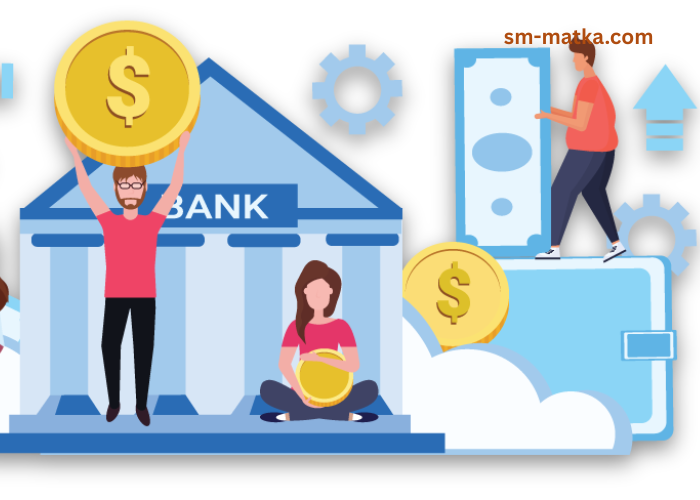
Achieving financial freedom is a goal that many people strive for, but not everyone knows how to get there. A crucial component of this journey is smart budgeting. Proper budgeting allows you to take control of your finances, manage your spending, and start saving for the future. In this article, we will explore a variety of smart budgeting tips that can help you achieve financial freedom and secure a better future for yourself.
Understanding Financial Freedom
Before diving into budgeting tips, it’s important to understand what financial freedom means. Financial freedom is not just about having a large sum of money or the ability to retire early; it’s about having enough resources to meet your needs and desires without stress or worry. It involves gaining control over your income, expenses, and investments, and it requires the discipline to live within your means while planning for your long-term goals.
Why Budgeting is the Key to Financial Freedom
Budgeting is the foundation of financial management. Without a budget, it’s easy to overspend, fall into debt, and miss opportunities to save or invest. A smart budget helps you:
- Track and control spending: Knowing where your money goes is the first step toward managing your finances.
- Save and invest: Budgeting allows you to allocate a portion of your income for savings and investments, which is key to achieving financial freedom.
- Pay off debt: Effective budgeting helps you set aside money to pay off debts, reducing financial stress.
- Prepare for the future: A good budget allows you to plan for big expenses, such as buying a house, starting a family, or retiring.
H2: Smart Budgeting Tips to Achieve Financial Freedom
Now that we understand the importance of budgeting, let’s explore some smart strategies that will help you create a solid budget and achieve financial freedom.
H3: 1. Start by Tracking Your Income and Expenses
The first step to creating a smart budget is understanding your current financial situation. This means tracking both your income and expenses. You can’t manage what you don’t measure.
- Track your income: Make a list of all sources of income, including your salary, side hustles, or any passive income you might receive.
- Track your expenses: Record all your expenses, both fixed and variable. Fixed expenses include rent, utilities, and loan payments, while variable expenses might include groceries, entertainment, and discretionary spending.
Using budgeting apps or spreadsheets can make this task easier. Apps like Mint, YNAB (You Need a Budget), or EveryDollar can help you keep track of your financial inflows and outflows effortlessly.
H3: 2. Create a Zero-Based Budget
A zero-based budget is one of the most effective budgeting methods for achieving financial freedom. With this approach, every dollar you earn is assigned a specific purpose, whether it’s for spending, saving, or investing. The goal is for your income minus your expenses to equal zero by the end of the month.
How to implement a zero-based budget:
- List all expenses: Start by listing your essential expenses such as rent, utilities, groceries, and transportation.
- Allocate for savings and investments: Make sure to allocate a portion of your income for savings or investment goals.
- Adjust discretionary spending: If there is any remaining money after allocating for essentials and savings, you can decide how much to allocate toward discretionary spending, such as dining out, shopping, or entertainment.
By using a zero-based budget, you ensure that every dollar has a purpose, preventing unnecessary spending and increasing your savings.
H3: 3. Prioritize Debt Repayment
If you have debt, paying it off should be a priority in your budget. High-interest debt, such as credit card debt, can quickly accumulate and hinder your ability to save and invest. Focus on paying off high-interest debts first, while still making minimum payments on other debts.
A common strategy for debt repayment is the debt snowball method, where you pay off your smallest debt first and then move on to the next. This provides psychological motivation as you eliminate smaller debts, and it can give you a sense of accomplishment as you move toward financial freedom.
Alternatively, the debt avalanche method focuses on paying off the debt with the highest interest rate first, saving you more money in the long run. Choose the method that works best for you and make sure to include debt repayment in your monthly budget.
H3: 4. Build an Emergency Fund
An emergency fund is essential for financial stability. It acts as a safety net in case of unexpected expenses such as medical bills, car repairs, or job loss. Aim to build an emergency fund of three to six months’ worth of living expenses.
How to build your emergency fund:
- Set a target: Determine how much you need to save based on your monthly expenses.
- Allocate a portion of your budget: Set aside a specific amount of money each month toward your emergency fund.
- Keep it separate: Store your emergency fund in a separate savings account to prevent the temptation to dip into it.
By having an emergency fund, you can prevent unexpected expenses from derailing your budget and putting you back into debt.
H3: 5. Save for Long-Term Goals
Once you have an emergency fund in place and have started paying off debt, it’s time to focus on long-term savings goals, such as retirement, buying a home, or funding your children’s education.
- Automate your savings: Set up automatic transfers to your savings account or retirement fund each month. This helps you stay consistent and makes saving easier.
- Invest for the future: Consider investing in retirement accounts such as a 401(k) or an IRA. Start investing early to take advantage of compound interest, which can significantly grow your wealth over time.
- Set specific goals: Break down your long-term goals into smaller, achievable milestones. For example, if you want to buy a house, determine how much you need for a down payment and set a timeline for reaching that goal.
Saving for long-term goals not only helps secure your financial future, but it also allows you to enjoy the peace of mind that comes with knowing you’re prepared for whatever comes next.
H3: 6. Cut Unnecessary Expenses
One of the quickest ways to boost your savings and move toward financial freedom is by cutting unnecessary expenses. Evaluate your spending habits and look for areas where you can cut back.
- Review subscriptions: Cancel any unused subscriptions, such as streaming services or gym memberships.
- Cook at home: Instead of dining out frequently, consider cooking meals at home. This can save you a significant amount each month.
- Shop smarter: Look for sales, use coupons, and take advantage of discounts to reduce your spending on clothing, groceries, and other items.
By making small changes in your spending habits, you can free up more money for saving and investing.
H3: 7. Set Up Financial Goals and Review Them Regularly
Setting clear financial goals helps you stay focused and motivated. Whether your goal is to pay off debt, save for a vacation, or invest for retirement, having a specific target gives your budget direction and purpose.
- Set short-term, medium-term, and long-term goals: Short-term goals might include paying off a credit card, while long-term goals could involve saving for retirement.
- Track your progress: Regularly review your financial goals and assess whether you are on track. Adjust your budget as needed to ensure that you are consistently working toward your objectives.
- Celebrate milestones: Celebrate achieving financial milestones, such as paying off a credit card or reaching a savings goal. This keeps you motivated to continue your journey toward financial freedom.
By setting goals and tracking your progress, you create a sense of purpose and direction in your financial planning.
H2: Conclusion: Building a Path to Financial Freedom
Achieving financial freedom doesn’t happen overnight, but with smart budgeting and a commitment to managing your finances effectively, it is absolutely achievable. Start by tracking your income and expenses, create a zero-based budget, prioritize debt repayment, build an emergency fund, and save for long-term goals. Cutting unnecessary expenses and setting clear financial goals will keep you on the right track.
The key is consistency and discipline. By following these smart budgeting tips, you can take control of your financial future and move toward the ultimate goal of financial freedom. It’s all about making intentional choices with your money and staying focused on the bigger picture.
Remember, financial freedom is not a destination but a journey. With the right tools and mindset, you can achieve the financial independence you’ve always dreamed of.



